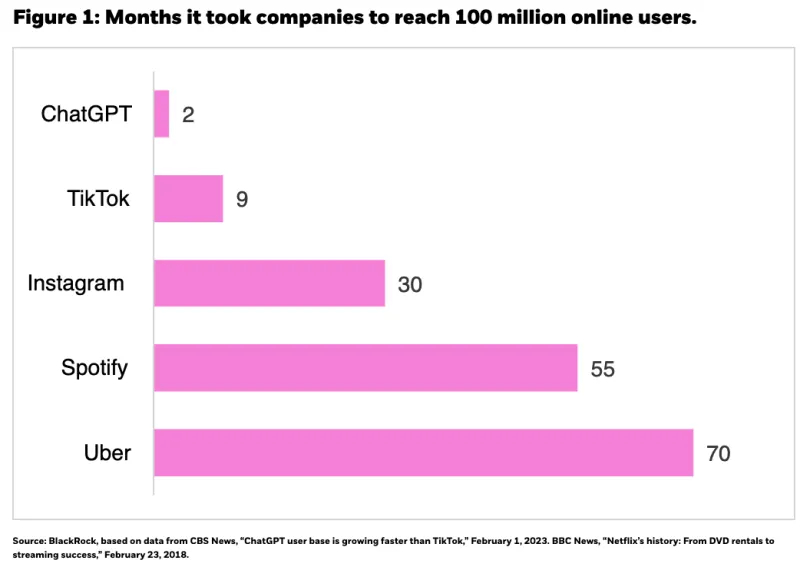The rapid growth of AI, particularly generative AI models like ChatGPT, is reshaping various sectors. ChatGPT, which achieved 100 million users within two months of its launch, is one of the fastest-growing consumer applications in history. This unprecedented adoption underscores AI’s transformative potential across industries, including financial advisory.
The best way advisors can capitalize on this is by using GPT Agents. If you’re not using GPT Agents, you’re massively behind the 8 ball.

WTF is GPT Agents
GPT, or Generative Pre-trained Transformer, is a cutting-edge artificial intelligence developed by OpenAI. Think of GPT as a super-intelligent machine that can read and understand text just like a human. It has been trained on a vast amount of information from the internet, allowing it to generate coherent and contextually relevant text based on the prompts it receives.
How Do GPT Agents Work?
GPT agents can perform multi-level tasks, which means they can handle complex sequences of actions that involve multiple steps. Here’s how they achieve this:
- Learning and Understanding: GPT agents are trained on diverse datasets, enabling them to understand and generate text on various topics. You can upload previous articles you’ve written, details about your style, practice etc so it learns from you.
- Task Execution: They can follow complex instructions and complete tasks that involve multiple stages, such as writing, editing, and publishing content. We’ll detail how this works in a second.
- Integration with Other Platforms: GPT agents can be integrated into various software and platforms, automating workflows and enhancing productivity. You can connect your agent to other tools like a CRM or email marketing software.
How Financial Advisors Are Using GPT Agents
1. Automated Client Reporting: GPT agents can gather financial data, generate detailed reports, and send them to clients automatically. You can personalize this per client and of course the report itself is 100% custom per their statements or results.
2. Personalized Client Communication: They can draft personalized emails and messages based on client preferences and recent interactions, enhancing client relationships. If you educate them on your clients, your agent can remember they just had a anniversary and include a congratulatory note.
3. Market Analysis: GPT agents can analyze market trends and provide real-time insights, helping advisors make informed investment decisions and run infinite scenarios.
4. Social Media Management: They can create, schedule, and post content on social media platforms, ensuring consistent and engaging client communication. Advisors are able to train their GPTs to be compliant by simply giving the GPT as much information as possible.
5. Content Creation and Publishing: GPT agents can write articles, edit content, and publish it on websites and social media, streamlining the content marketing process. I belive most people get it but they don’t get it. With a single prompt you can write an article, email, social media posts, and publish it.
Your Content Goes Here
Tom Leahy, CFA | Financial Advisor, Condor Capital Wealth Management
Marketing and Advertising
AI agents can transform marketing and advertising strategies for financial advisors. These tools analyze client data to create highly targeted marketing campaigns that resonate with specific audiences. Platforms like Adobe Marketo and HubSpot utilize AI to personalize content and optimize campaign performance, resulting in higher engagement and conversion rates.
Custom Merge Tags and Email Personalization
Custom merge tags allow advisors to personalize their email communications, addressing clients by name and referencing specific details about their financial situation. AI-driven email marketing platforms can dynamically insert relevant information into emails, making each message more personalized and impactful. This level of customization can significantly improve client engagement and loyalty.
Consulting and Advisory Services
AI agents can support financial advisors in providing more comprehensive and personalized consulting services. By analyzing client data, AI can identify trends and potential opportunities, offering actionable insights that advisors can use to guide their clients. This allows for more strategic decision-making and better long-term financial planning.
Real-World Examples
1. Morgan Stanley
Morgan Stanley has integrated AI to enhance their financial advisory services. Their AI-powered assistant helps advisors draft summaries of client calls, send follow-up emails, and schedule upcoming events, freeing up valuable time for more strategic tasks [oai_citation:18,8 Best Finance AI Tools in 2024](https://nanonets.com/blog/finance-ai-tools/).
2. Betterment
Betterment uses AI to optimize investment portfolios for their clients. By continuously analyzing market conditions and individual client goals, Betterment’s AI tools provide personalized investment advice and automated portfolio management [oai_citation:19,Ten AI Tools for Advisors – Articles – Advisor Perspectives](https://www.advisorperspectives.com/articles/2023/04/25/ten-ai-tools-for-advisors).
Key Benefits of AI for Financial Advisors
1. Enhanced Data Analysis and Insights
AI tools can process vast amounts of data quickly and accurately. Tools like Domo and Vena Insights integrate data from multiple sources, providing real-time analytics and intuitive dashboards that help advisors make data-driven decisions. These platforms are designed to uncover hidden patterns and trends, allowing for better financial planning and risk management.
2. Personalized Client Outreach
AI-powered platforms such as Salesforce Einstein and HubSpot AI analyze client behavior and preferences to deliver personalized marketing messages. This leads to higher engagement and conversion rates. Chatbots and virtual assistants, like Cleo and Clinc, can handle routine client interactions, schedule appointments, and provide personalized financial advice [oai_citation:3,Ten AI Tools for Advisors – Articles – Advisor Perspectives](https://www.advisorperspectives.com/articles/2023/04/25/ten-ai-tools-for-advisors).
3. Risk Management
AI-driven risk management tools, such as those offered byDataRobot and Trullion, can continuously monitor market conditions and identify potential risks. These tools use AI to detect anomalies and ensure compliance, thereby reducing the workload on human advisors and improving accuracy in financial reporting [oai_citation:4,The 9 Best AI Tools for Finance & FP&A (2024) – Vena](https://www.venasolutions.com/blog/best-ai-tools) [oai_citation:5,Ten AI Tools for Advisors – Articles – Advisor Perspectives](https://www.advisorperspectives.com/articles/2023/04/25/ten-ai-tools-for-advisors).
4. Portfolio Optimization
Platforms likeSigFig and Wealthfront use AI to create and manage customized investment portfolios based on individual client goals and risk tolerance. These tools provide automated investment advice and continuously monitor portfolios to optimize asset allocation [oai_citation:6,Ten AI Tools for Advisors – Articles – Advisor Perspectives](https://www.advisorperspectives.com/articles/2023/04/25/ten-ai-tools-for-advisors).
5. Compliance and Auditing
AI tools likeStampli and Rebank help financial advisors ensure regulatory compliance by automating the auditing process and generating accurate financial documents. These tools can also facilitate international financial operations by handling multi-currency transactions and ensuring legal compliance across different jurisdictions [oai_citation:7,8 Best AI Finance Tools in 2024 – Datarails](https://www.datarails.com/best-ai-tools-for-finance-teams/) [oai_citation:8,The 9 Best AI Tools for Finance & FP&A (2024) – Vena](https://www.venasolutions.com/blog/best-ai-tools).
The Growth and Future of AI and ChatGPT
1. Regulatory Compliance: As AI becomes more integrated into financial services, ensuring compliance with regulatory standards will be crucial. Advisors must stay updated on regulatory changes and ensure their AI tools are compliant [oai_citation:20,Ten AI Tools for Advisors – Articles – Advisor Perspectives](https://www.advisorperspectives.com/articles/2023/04/25/ten-ai-tools-for-advisors).
2. Data Privacy and Security: Protecting client data is paramount. Advisors must ensure that AI tools have robust security measures to prevent data breaches and unauthorized access.
3. Balancing Automation and Human Touch: While AI can handle routine tasks and provide valuable insights, maintaining a personal touch in client interactions remains essential. Advisors should use AI to enhance their capabilities, not replace human elements of trust and relationship-building [oai_citation:21,The 9 Best AI Tools for Finance & FP&A (2024) – Vena](https://www.venasolutions.com/blog/best-ai-tools).
Artificial intelligence is reshaping the financial advisory landscape, offering tools that enhance efficiency, accuracy, and personalization. By integrating AI into their practices, financial advisors can better serve their clients, streamline operations, and stay ahead in a competitive market. As AI technology continues to evolve, staying informed and adapting to new tools will be key to unlocking its full potential.
For further reading and to explore more AI tools for financial advisors, visit the following resources:
– [Nanonets](https://nanonets.com)
– [Datarails](https://datarails.com)
– [Advisor Perspectives](https://advisorperspectives.com)
– [Vena Solutions](https://venasolutions.com)
By embracing AI, financial advisors can transform their practices and deliver superior client experiences, paving the way for future growth and success.
By the way, this article was written using a GPT Agent 😉.
As the Editor of The Gershman Group, a boutique financial services consulting firm, TGG brings expertise in financial analysis, strategic planning, and market research. With a keen eye for detail and a passion for helping businesses navigate complex financial landscapes, TGG delivers insightful, high-quality content to empower informed decisions. Backed by years of industry experience, TGG makes complex topics accessible through clear and compelling communication, shaping the firm’s thought leadership and commitment to excellence in financial services.







